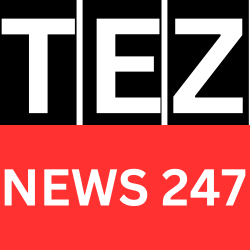Microsoft’s CEO, Satya Nadella, indicated on Monday that the door is still open for the return of Sam Altman to OpenAI, despite Altman’s recent announcement of joining Microsoft’s artificial intelligence innovation division.
In a CNBC interview, Nadella expressed openness to both possibilities and emphasized that the decision ultimately rests with OpenAI’s board, management, and employees. Microsoft, a major backer with a $13 billion investment in OpenAI, affirmed its commitment to the partnership.
The abrupt firing of Altman last Friday led to turmoil within OpenAI, resulting in the resignation of President Greg Brockman and threats of mass resignations from OpenAI employees. Microsoft’s stock reached an all-time high following the announcement of Altman’s hiring.
As the situation evolved, reports surfaced suggesting Altman’s contemplation of returning to OpenAI. Nadella reiterated Microsoft’s commitment to Altman and Greg Brockman, emphasizing the desire for them to have a fantastic home, whether at OpenAI or Microsoft.
Nadella also acknowledged the need for changes in governance at OpenAI, indicating that “something has to change around the governance.”
OpenAI Employees Threaten Mass Resignations Over CEO Firing
The future of OpenAI hangs in uncertainty as hundreds of employees sign a letter demanding the resignation of the current board after the inability to reinstate ousted CEO, Sam Altman.
Altman, whose departure from OpenAI was announced on Friday, joined Microsoft to lead a new AI project. The boardroom drama over the weekend resulted in the resignation of OpenAI’s president, Greg Brockman, and the appointment of an interim CEO, Mira Murati.
In a letter signed by over 740 employees, they expressed intent to resign and potentially join Microsoft unless the current board steps down, two new lead independent directors are appointed, and Altman and Brockman are reinstated. The letter accuses the board of incompetence and lack of judgment.
Ilya Sutskever, a board member and co-founder of OpenAI, expressed regret for his role in Altman’s exit and hinted at ongoing efforts to bring Altman back. The majority of the company’s staff joined the letter, emphasizing that “OpenAI is nothing without its people.”
Board Shake-up at OpenAI Sparks Employee Uprising ( Return of Sam Altman to OpenAI )
Almost the entire staff of OpenAI, comprising around 95% of approximately 770 employees, has signed a letter threatening to leave and join a new venture led by ousted CEO Sam Altman.
The letter demands the reinstatement of Altman and Greg Brockman, the resignation of the board that fired Altman, and the appointment of new board members. Altman’s removal from OpenAI on Friday triggered a series of events, including negotiations for his potential return and the subsequent announcement of joining Microsoft.
Venture firm leaders, such as Vinod Khosla and Joshua Kushner, have voiced support for Altman, with Khosla calling for the resignation of OpenAI’s interim CEO and questioning the legality of the board’s actions. The employee-led campaign to reinstate Altman continues to gain momentum.
The implosion of OpenAI, a high-flying company whose ChatGPT rapidly became one of the most remarkable and controversial technologies in tech history, has stunned and perplexed the tech industry.
OpenAI became the most influential company in the tech industry after releasing ChatGPT, a chatbot that demonstrated stunning conversational and problem-solving abilities, just under a year ago. Altman surfed this wave of success with aplomb, meeting world leaders eager to discuss AI and its potential, and negotiating a deal that would see Microsoft invest a further $10 billion in OpenAI.
At the company’s first developer conference this month, Altman announced the creation of an app store for customized chatbots. He was also seeking billions in funding to launch a chipmaking effort that would challenge Nvidia’s dominance, according to a source speaking on the condition of anonymity about Altman’s intentions in recent months.
That stratospheric commercial success sat awkwardly with the risk-averse nature of OpenAI’s founding in 2015 as a nonprofit intended to be a counterweight to the AI labs of major tech companies such as Google.
The fiduciary duty of the nonprofit board overseeing the for-profit company that has housed OpenAI’s AI development since 2019 remained the project’s original mission: “To ensure that artificial general intelligence benefits all of humanity.” The board’s claim that Altman had been “hindering its ability to exercise its responsibilities” suggests it saw something in his behavior at odds with that mission.
